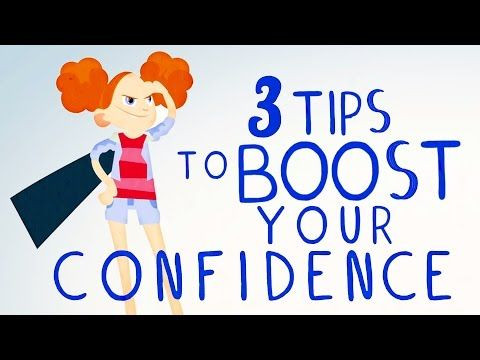How To Be More Confident: 3 Practical Ways You Can Avoid Low Self-Esteem

It goes like this: You’re faced with a challenge, whether it’s in the home or workplace, and you begin to question yourself. You think maybe you don’t have what it takes to overcome this obstacle, to which an insightful friend tells you to just “be more confident” — whatever that means. The thing is confidence, which Ted-Ed defines as the belief that you are valuable, worthwhile, and capable, hinges on a couple different things: your genes, your environment, and your personal mindset. So how are you really supposed to improve your self-esteem if, sometimes, it’s out of your control?
TedEd’s new video, in partnership with the #LikeAGirl campaign, explores the practical ways you can build up your confidence. For starters, try something in the moment: Picture your success when you’re beginning a difficult case, perhaps to the beat of music with a deep bass. Ted-Ed cited that this kind of music can “promote feelings of power.” If that doesn’t work, believe that you have the ability to improve.
“If you’re looking for a long term change, consider the way you think about your abilities and talents. Do you think they are fixed at birth, or that they can be developed like a muscle? These beliefs matter because they can influence how you act when you’re faced with setbacks.”
Having a growth mindset over a fixed mindset is favored by neuroscientists, Ted-Ed said. Research reportedly shows “the connections in your brain do get stronger and grow with study and practice.” Not to mention those with a growth mindset have been found to be more successful.
Lastly, practice failure. Ted-Ed gave the example of JK Rowling, who was rejected by 12 different publishers before one decided to pick up Harry Potter. The people who fail regularly and keep trying anyway are thought to be better equipped to respond to challenges and set backs in a more constructive way.
Ted-Ed concludes: "Think of a challenge, realize it won’t be easy, accept mistakes, and be kind to yourself when you do."
Published by Medicaldaily.com



























